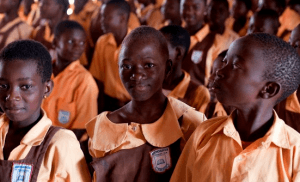Large number of Ghanaians can’t read a sentence after school – Report
 A UNESCO report on education shows that a large population in Ghana can’t read a sentence after leaving school four years ago.
A UNESCO report on education shows that a large population in Ghana can’t read a sentence after leaving school four years ago.
“In Ghana, for example, over half of women and over one-third of men aged 15 to 29 who had completed six years of school could not read a sentence at all in 2008. A further 28% of the young women and 33% of the young men could only read part of a sentence,” it says.
According to the report released today October 16, 2012 it is commonly assumed that it takes four or five years of school for children to use reading, writing and calculation with ease.
“New analysis of household surveys for this Report shows, however, that far more children than expected in low and lower middle income countries are completing primary school without becoming literate,” it says.
The report points out the fact that natural resources, if turned into government revenue and utilized efficiently, could help many countries reach the Education For All (EFA) goals.
Botswana, the report says, has financed education over the past few decades thanks to diamond wealth that has made it one of the richest countries in sub- Saharan Africa.
“Not only has it achieved universal primary education but its secondary gross enrolment ratio stands at 82%, double the average for the continent,” it adds.
On Ghana the report notes that the country has built political consensus around ensuring that its wealth is used effectively, including in investment in education.
“An analysis for this Report demonstrates the potential to increase spending on education in seventeen countries that are either already resource-rich or about to begin exporting oil, gas and minerals. If revenue generated from their non-renewable natural resources were maximized and 20% of the extra resources were devoted to education, more than $5 billion a year could be generated for the sector,” it says.
Adding that this could fund schooling for 86% of these countries’ 12 million out-of-school children and 42% of their nine million out-of-school adolescents. Several countries, including Ghana, Guinea, the Lao People’s Democratic Republic, Malawi, Uganda and Zambia, could reach universal primary education without needing any more aid from donors.
The report UNESCO says is an independent publication commissioned by it on behalf of the international community.
It describes it as the product of a collaborative effort involving members of the Report Team and many other people, agencies, institutions and governments.
The EFA Global Monitoring Report argues that secondary education should build on foundation skills and provide equal opportunities for all youth to develop transferable and technical and vocational skills to find a good job or for further education.
A common curriculum in lower secondary school helps give all children an equal chance of consolidating foundation skills, it says.
“When students at greater risk of school failure are grouped together, lower expectations, a less stimulating learning environment and peer effects often diminish their learning achievement. For this reason, some low and middle income countries, such as Botswana, Ghana, South Africa and Uganda, have developed a common curriculum framework, together with new assessment practices, learning materials and teacher training activities,” it says.
The report notes that making the curriculum more flexible in upper secondary schools in terms of subject choices and allowing a route back to further education can result in benefits for all students, as Singapore’s experience has shown.
By Emmanuel K. Dogbevi
